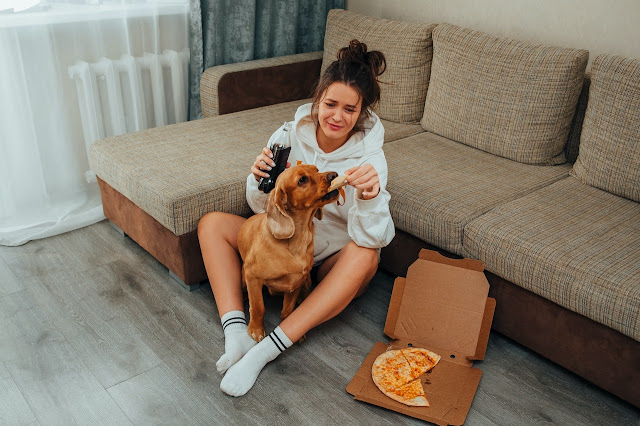How to Properly Care for Dogs
 |
| Photo by Ivan Babydov from Pexels |
Whether it's okay to give bones to dogs, what's better to feed them, when it's time to show them to the vet - find out the answers to the most common questions first-time dog owners have when you have a new friend in your life. By the way, if you're interested in can you claim your pets on your taxes, you can learn more here.
What to feed your dog?
The first rule is not to skimp on food. Believe me, the vet and medicine for your dog will cost more than good food. And there's a simple rule: it shouldn't be cheap and it shouldn't be sold at the supermarket. Do not be lazy to go to a pet store, there is a much larger selection of good food in the medium price range.
Kip Dog Boarding explains that you can also feed your dog natural food. The main thing is to watch the balance of the diet and not to forget to provide your pet with vitamins and minerals. There are many healthy, natural options, like a combination of buckwheat, rice, chicken, or beef offal. Giving salty foods is not recommended.
A strict feeding schedule is one of the keys to healthy digestion.
Yummy treats for dogs are not flours and sweets. If you want to pamper your pet, buy him a special treat from a pet store.
Fresh filtered water should always be readily available.
Important: Contrary to popular belief, you shouldn't let your dog chew on bones. They destroy the enamel, and the pet can chip or even break a tooth. In addition, bone fragments clog the gastrointestinal tract quite badly. Want to give your dog something to chew on? Pet stores have a great alternative - vein bones.
When should I go to the vet?
There's no better way to rid you and your dog of unnecessary problems than sterilization. You won't have to worry about him running away from you, attracted by the smell of heat, or if he'll suddenly give birth.
A six-monthly checkup at the vet will help detect and prevent any potential illnesses. It's better to be reassured and see a problem early on than to have to clean up after a neglected illness.
Vaccinations are as inevitable as taxes. Vaccinations for rabies and other viral diseases are given once a year.
If you notice changes in your dog's behavior or appearance - lethargy, refusal to eat, areas of baldness, seals under the skin - see your veterinarian. It's better to take a wasted walk than to miss the onset of disease.
You won't have to worry about him running away from you, attracted by the smell of heat, or if he'll suddenly give birth. learn about the dog heartworm symptoms to avoid risk in your dog's life.
What about walks?
The good thing about winter is that the chance of bringing home a tick is minimized. In the summer, however, it's a good idea to spray your dog with bug spray before a walk to avoid picking up a parasite.
But it's still better to reinsure yourself and check the coat after the walk. Especially if you walked in the woods. By the way, learning how to pull out a tick is not difficult. Ask the vet to show you how to do it, and you can get rid of the insect yourself if you need to.
You can brush your dog while walking, so there's less house cleaning and a chance to find the tick in time.
Even if it's summer and very hot, don't let your dog swim in an unfamiliar body of water. Who knows what else might be swimming there, and you'll have to treat infections later.
You mustn't let your dog pick up anything on the street, much less eat it. It's an axiom. Training your dogs to not do that with the help of dog training Huntsville experts can help you prevent unwanted dog attitudes.
A sedentary lifestyle is a way to diseases. A healthy lifestyle starts outdoors. Walk with your pet as often as possible, let him get a little tired after the walk, but he'll come home happy. And for a modern city dweller, such physical activity will be useful.
What should you never do?
- Let your dog run around alone. Walking by yourself is the fastest way to lose your pet. Walking in your fenced-in area is an exception.
- Playing with your dog with a small ball: he could swallow it and suffocate.
- Leaving your dog at home with his collar on. Active animals may snag on protruding objects and choke themselves.
- Eat a lot of food. Food will swell in the stomach and cause the dog to vomit.
The thing to do, though, is to love your pets and spend as much free time with them as possible. Their lives are much shorter than ours, and we are a big part of that life.
